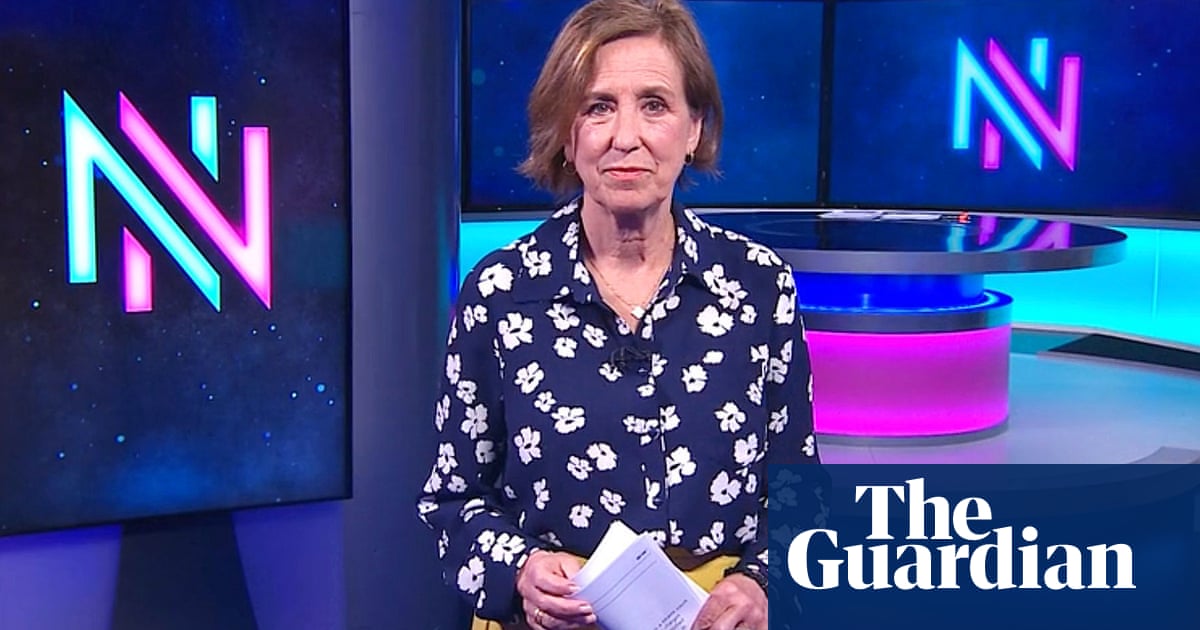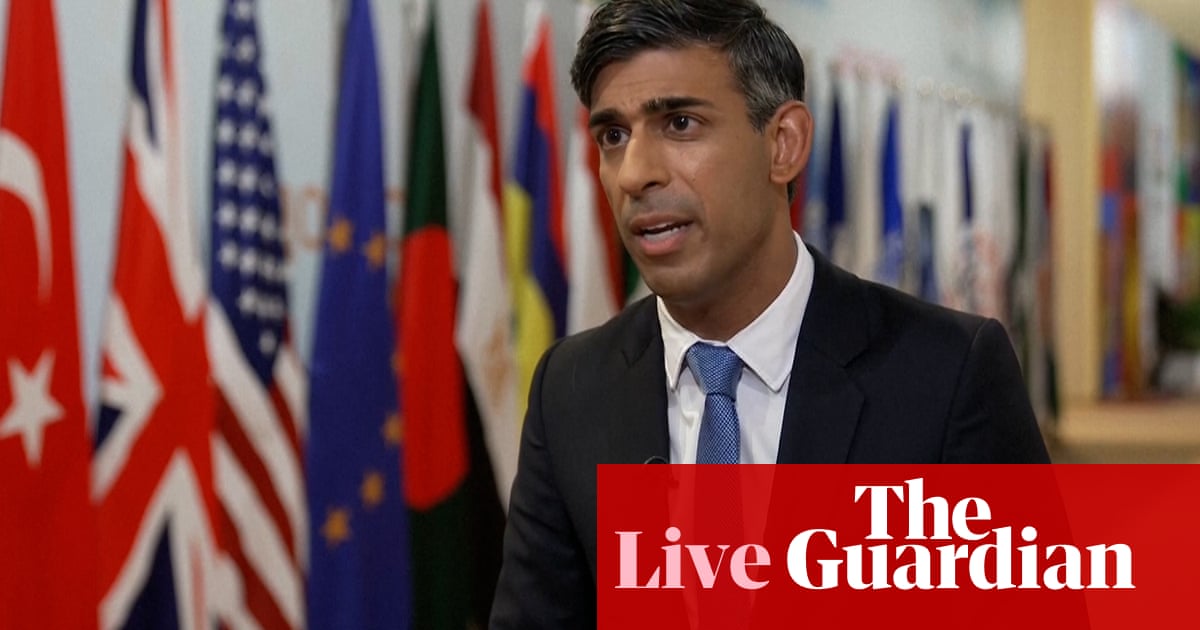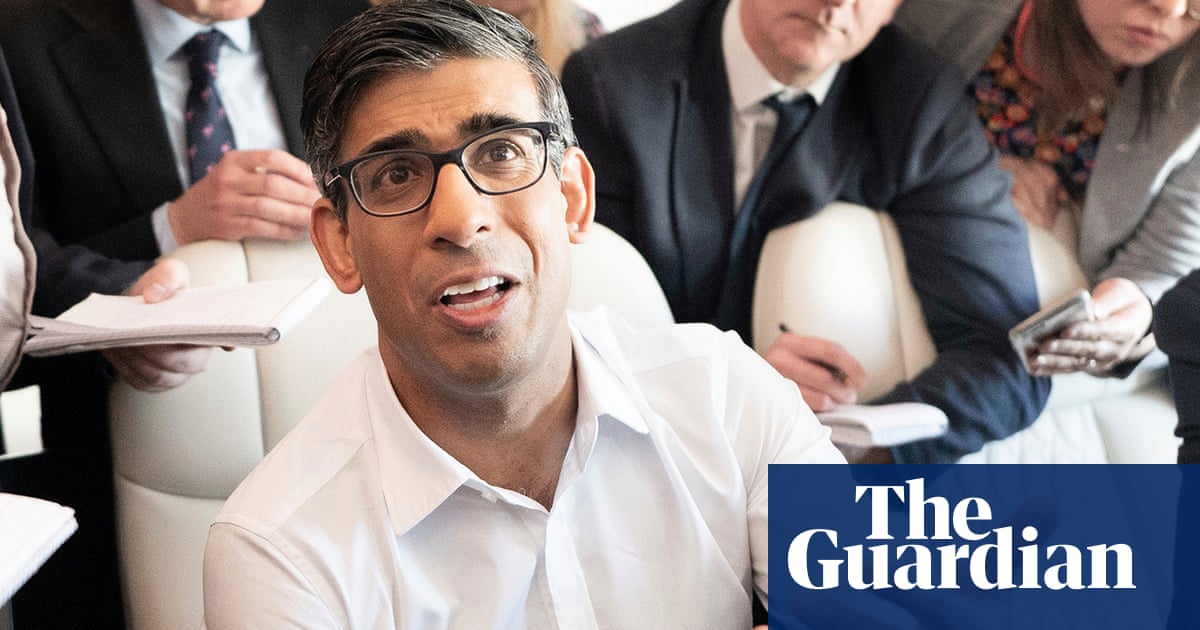
The prime minister has said that cuts at the BBC are “welcome” and that it is appropriate for the corporation to make savings when things are difficult.
It comes amid reports that ministers are planning further curbs on the licence fee which has been frozen for two years.
After celebrating his achievement in halving inflation, which remains more than double the Bank of England’s 2% target, the prime minister has urged all public-serving organisations to be mindful of the cost of living crisis and make difficult decisions.
Sunak made the comments en route to Dubai for an eight-hour visit to the Cop28 climate summit.
His remarks came shortly after the BBC confirmed plans on Wednesday to make £500m of savings, with Newsnight set to become a 30-minute “interview, debate and discussion show”.
Efficiencies and savings have been made at the broadcaster after the government last year froze its funding for two years, with the licence fee remaining at £159 until April 2024.
After this, it would rise in line with inflation for four years before the licence fee is abolished in 2027.
But on Thursday, ministers may confirm that the licence fee could rise by the September rate of consumer price index inflation – 6.7% – instead of the higher 12-month average, the Sunday Times reported.
Acknowledging that final decisions had not been made, the prime minister said: “Going forward … the BBC should be realistic about what it can expect people to pay at a time like this,” in regards to the licence fee.
The broadcaster’s shake-up will also include an extended hour-long edition of BBC News at One, which will be relocated to Salford, making it the only daily BBC national news bulletin to be broadcast outside London. BBC Breakfast, also broadcast from Salford, will be extended by 15 minutes.
The corporation expects the changes to save £7.5m as part of its plan to cut spending by £500m.
On his way to Dubai, Sunak told reporters: “First thing to say is, I think it is welcome that the BBC are looking at making savings and efficiencies in how they operate.
“It’s really important that when things are difficult, everyone is doing what they can to ease the cost of living on families. That’s certainly what I have done over the last year and made a bunch of decisions that haven’t been easy. But that’s helped to bring inflation down to ease the burden and the cost of living.”
Cuts to the BBC’s flagship evening news programme Newsnight have been described as “a bad decision” that reveals a “loss of confidence” at the corporation.
Newsnight staff past and present reacted with dismay and anger at the axeing of half of the programme’s staff by BBC, which will lead to the programme being cut to 30 minutes and its headcount slashed from 57 to 23.
The move to abolish the licence fee raised questions about the long-term financial future and editorial independence of the public service broadcaster under a Conservative government.
The government has repeatedly criticised the corporation’s news output, claiming it is biased against the government and linking negative coverage of the prime minister to the licence fee negotiations.
The Conservative MP Michael Fabricant criticised the broadcaster, claiming it had launched a “coup attempt” against Boris Johnson, after hearing a news bulletin featuring criticism of the then prime minister over lockdown parties at Downing Street in 2022.
The BBC has faced repeated deep real-terms spending cuts since the start of the Tory-Liberal Democrat coalition government in 2010, with the Conservatives forcing the broadcaster to pay for free licences for the over-75s, then blaming it when they took the benefit away.
Tim Davie, the BBC’s director general, said there was no doubt the deal would affect the broadcaster’s frontline output. Revealing that the settlement would leave a £285m gap in funding by 2027, Davie said: “We are disappointed. We would have like to have seen an inflation rise throughout the period. We’ve got four out of six years and on we go.”












